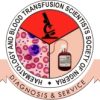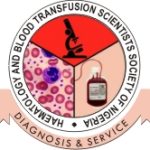doi.org/10.59708/ajlhts.v2i4.2326
Download PDF - 70 Downloads
Performance Of Enzyme Linked Immunosorbent Assay and Rapid Screening Techniques for detection Of Transfusion Transmitted Infections among blood donors
Esan Ayodele Jacob, Owoseni M.F, Ibijola A, Omisakin C.T, Omoniyi D.P, Oyedele Titilayo and Fasakin Kolawole
1,2,3,4,5,7 Department of Haematology and Blood Transfusion Science, Federal Teaching Hospital, Ido-Ekiti, Nigeria.
6Department of Medical Laboratory Science, Achiever’s University, Ondo State, Nigeria.
*Corresponding Author: ESAN Ayodele Jacob, Department of Haematology and Blood Transfusion Science, Federal Teaching Hospital, Ido-Ekiti, Nigeria. Orcid number: 0000-0002-3350-5991, e-mail: ayodelejacob4u@gmail.com, ayodelejacob4u@fethi.gov.ng,+2348035477756
Abstract
Introduction: Blood transfusion is associated with many risks, especially exposure to a transfusion-transmitted infections (TTIs). Lack of effective diagnostic techniques that can identifying the infection at window period contributes to the major health problem in most developing countries. The aim of this study was to compare diagnostic performance of enzyme linked immunosorbent assay (ELISA) and rapid screening techniques for detection of transfusion-transmitted infections (TTIs) among blood donors
Methodology: This study was conducted in the Department of Haematology and Blood Transfusion Services Federal Teaching Hospital, Ido-Ekiti, Nigeria from February 2021 to July 2023. A total of 3150 eligible blood donors that were screened fit for blood donation using rapid kits were subjected to ELISA screening technique. Questionnaire was used to inquire about risk factors for transfusion transmissible infection among blood donors and to sort the consent of all the blood donors before collecting their blood sample for study
Result: A total of 3150 blood donors that were screened negative for TTIs (HbsAg, HCV, HIV and syphilis) by rapid test kits were recruited for the study. Out of 3150 blood donors that were re-screened for TTIs by ELISA techniques, 34 (1.08%), 50 (1.59%), 07 (0.22%) and 13 (0.41%) were sero-positive for HbsAg, HCV, HIV and syphilis respectively. In general, the percentage seroprevalence of TTIs in our study was 104/3150 (3.3%), HCV had the highest prevalence of TTIs and Blood group O Rh D positive has the highest frequency among the study population
Conclusion: This study concluded that rapid test did not show any promising results when compared to ELISA. This study suggested that rapid test kits should not be recommended in transfusion center solely for screening blood donors for TTIs. There is need for combination of rapid test kits along with ELISA technique in the diagnosis of TTIs for blood donors. We advocate for legislation to make screening with ELISA mandatory for TTIs in all blood transfusion center and other health facilities in the country
Key words: Blood transfusion, Transfusion transmissible infection, Blood donors, Rapid kits, ELISA technique

